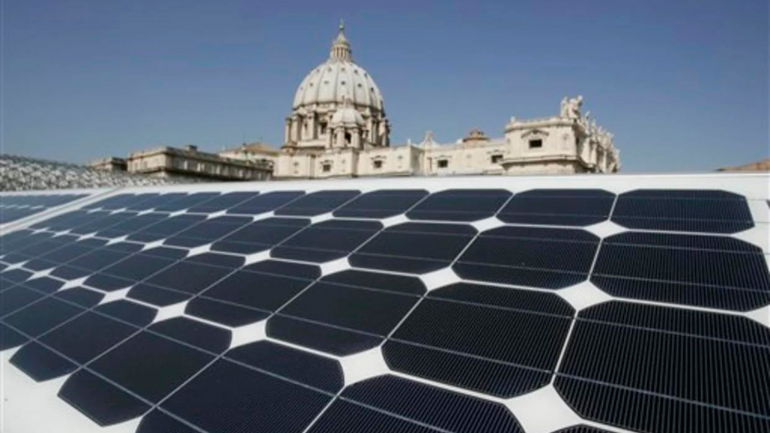Pope Francis reveals solar energy plan for Vatican

Pope Francis has announced plans for the Vatican City to go solar through his latest motu proprio, Fratello Sole, or Brother Sun.
The pope has delegated Vatican governing bodies to work with the Italian government to build an agrivoltaics system in the lands of Santa Maria di Galeria, located outside of Rome and an extra-territory of Vatican City.
It will be used to generate electricity for the radio station situated there, as well as to produce energy for the entire city-state.
“Humanity has the technological means necessary to face this environmental transformation and its pernicious ethical, social, economic, and political consequences and, among these, solar energy plays a fundamental role,” said the pope in the document.
The Holy Father said that the transition to solar energy aligns with the United Nations Framework Convention on Climate Change and the Paris Agreement, which came into effect in the Vatican in 2022.
This move is the latest of the green initiatives of the Vatican, which has been striving to become ecologically sustainable for the past two decades.
In 2016, during the pontificate of Pope Benedict XVI, he approved the installation of 2,400 solar panels on the roofs of the Paul VI Hall as part of his goal to make the Vatican the world’s first “carbon neutral state.”
In 2016, a year after the release of the environmental encyclical Laudato Si’, the Vatican vastly innovated its recycling system.
Last year, the Vatican, in a partnership with Volkswagen, introduced an all-electric, zero-impact car fleet to achieve carbon neutrality by 2050.
Through these ecological efforts, the city-state has reduced global emissions by around 0.0000443% in 2022, according to reports of the United Nations Framework Convention on Climate Change (UNFCCC).
They noted the Vatican’s commitment to achieving “a reduction in emissions in line to keep global warming below 2 degrees Celsius, as well as to pursuing efforts to limit the temperature increase to 1.5 degrees Celsius above pre-industrial levels as foreseen in the Art. 2 of Paris Agreements.”
Radio Veritas Asia (RVA), a media platform of the Catholic Church, aims to share Christ. RVA started in 1969 as a continental Catholic radio station to serve Asian countries in their respective local language, thus earning the tag “the Voice of Asian Christianity.” Responding to the emerging context, RVA embraced media platforms to connect with the global Asian audience via its 21 language websites and various social media platforms.














